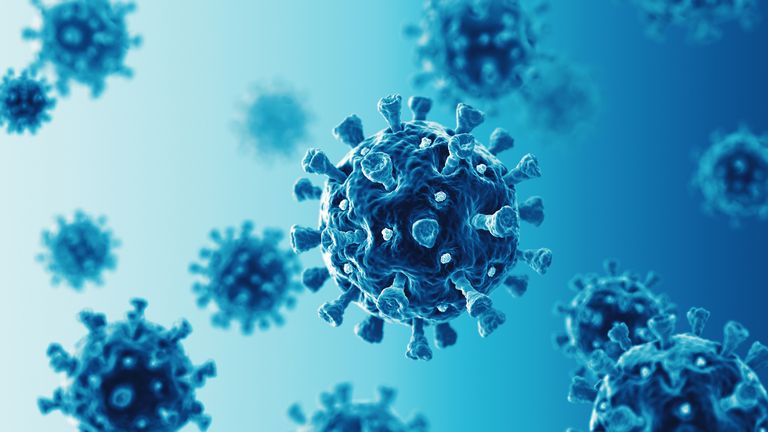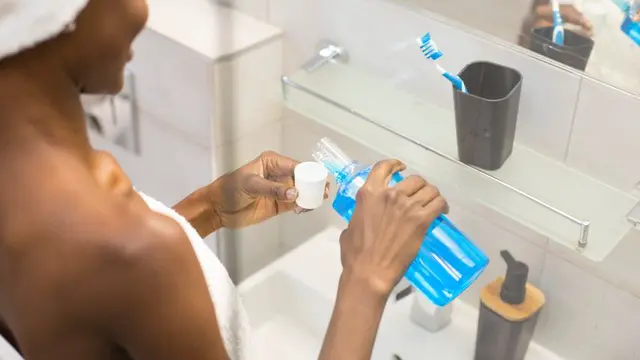Mouthwash is able to kill COVID-19 within 30 seconds of exposure to it in a laboratory, a scientific study has found.
The preliminary findings, which are yet to be peer reviewed, come ahead of a clinical trial investigating whether over-the-counter mouthwash can reduce the levels of
coronavirus
in a patient's saliva.
The research, which was conducted at
Cardiff
University, found that mouthwashes containing 0.07% of the ingredient cetylpyridinium chloride (CPC) showed "promising signs" of reducing COVID-19
.

Image:A clinical trial will look at the effectiveness of using mouthwash to reduce the viral load of COVID-19 among patients
These findings support another recently published study which identified that CPC-based mouthwashes are effective in reducing the viral load of coronavirus.
Scientists conducted tests in a laboratory mimicking the conditions of a person's nasopharynx and oropharynx passages, using mouthwash brands such as Dentyl.
A 12-week clinical trial at the University Hospital of
Wales
will now help determine the effectiveness of mouthwash in reducing the COVID-19 viral load in patients' saliva.
Dentyl will be the only UK mouthwash brand used in the trial, and the findings will be published in early 2021.
**:: Subscribe to the Daily podcast on **
Apple Podcasts
**, Google Podcasts
, Spotify
, Spreaker
**
Professor David Thomas, from Cardiff University who is leading the clinical trial, said: "Although this in vitro study is very encouraging and is a positive step, more clinical research is now clearly needed.
"We need to understand if the effect of over-the-counter mouthwashes on the COVID-19 virus achieved in the laboratory can be reproduced in patients, and we look forward to completing our clinical trial in early 2021."
Dr Nick Claydon, a specialist periodontist, said the research was "very valuable".
He said: "If these positive results are reflected in Cardiff University's clinical trial, CPC-based mouthwashes such as Dentyl used in the in vitro study could become an important addition to people's routine, together with handwashing, physical distancing and wearing masks, both now and in the future."
 简体中文
简体中文










